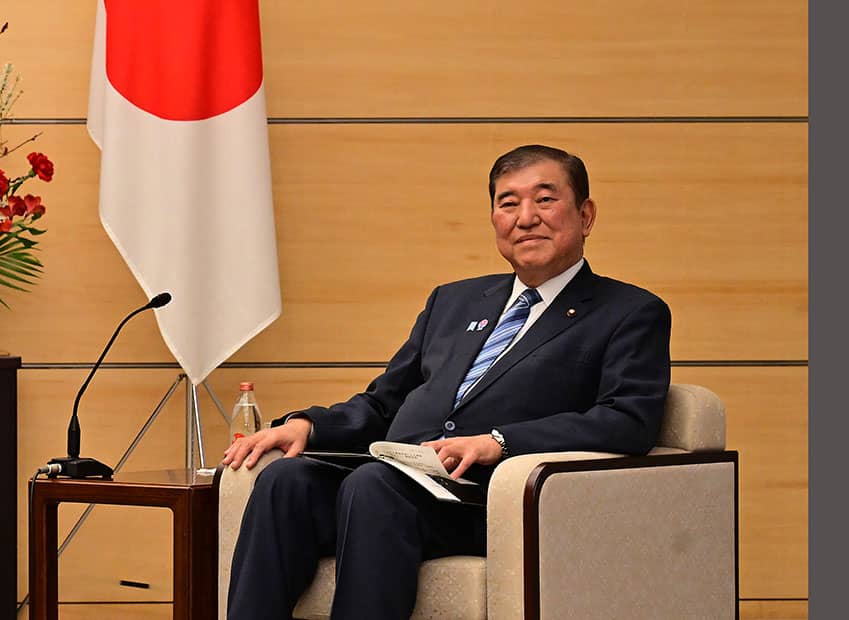Yen Poised for Gains on Japan's Reform Story and Bond Appeal: Lombard Odier
- Written by: Gary Howes

File image of Shigeru Ishiba. Photo Credit: Dean Calma / IAEA.
Japan is transitioning from "a satellite market to a core of global portfolio allocations."
While political tensions simmer ahead of Japan’s upper house elections next month, analysts at Lombard Odier believe the yen and Japanese assets offer long-term value, supported by structural reforms, attractive bond yields, and the potential for a currency revaluation as U.S. interest rates fall.
Despite Prime Minister Ishiba Shigeru’s tenuous hold on power and investor concerns over fiscal backsliding, Lombard Odier argues the fundamentals remain intact.
"Japan’s political noise shouldn’t cloud steady fundamentals," the investment firm said in its CIO Office Viewpoint published on June 11. "We still assume that the BoJ will remain on hold until Q1 2026," the analysts added, contrasting with market expectations of a rate hike later this year.
Compare Currency Exchange Rates
Find out how much you could save on your international transfer
Estimated saving compared to high street banks:
£2,500.00
Free • No obligation • Takes 2 minutes
Yields on Japanese government bonds (JGBs) have surged amid uncertainty over post-election fiscal policy, with 10-year yields touching 1.46% and 30-year yields approaching 2.90%. However, Lombard Odier sees this repricing as overdone. "Current yield levels are increasingly attractive for long-term investors," the report said, especially those seeking currency-hedged income in U.S. dollars.
The yen has traded in a relatively stable 143–148 band against the dollar since May, following Lombard Odier’s neutralisation of a previously long yen position. The firm expects the yen to strengthen as the Federal Reserve begins its rate-cutting cycle. "With the US dollar-Japanese yen currency pair overvalued and the Federal Reserve likely to gradually cut rates, we assume USDJPY will move lower over the next 12 months," it noted.
Beyond monetary policy, structural reforms are helping reframe the investment case for Japan. The Tokyo Stock Exchange’s higher listing standards, corporate governance improvements, and rising shareholder activism have buoyed equity markets, despite macro volatility.
"There is a shift in corporate [behaviour] from merely meeting targets to prioritising shareholder value and maximising market capitalisation," the analysts wrote. They highlighted the rise of unsolicited takeovers and share buybacks as evidence of Japan’s corporate evolution.
While opposition parties are advocating costly stimulus packages that could reverse recent fiscal consolidation, Lombard Odier believes political instability may not lead to major policy shifts. "Any supplementary budget that serves as a middle ground for competing proposals could be rather modest in its ultimate impact on debt, while slightly supportive for near-term growth," the firm said.
With bond markets approaching the upper bound of yield repricing and equity reforms gaining traction, Lombard Odier concludes Japan is transitioning from "a satellite market to a core of global portfolio allocations."
As election uncertainty peaks in July, the firm remains cautiously optimistic. "We like JGBs, in particular the 5-year maturity, and remain ready to raise our exposure in the event of further yield spikes," the strategists wrote.
